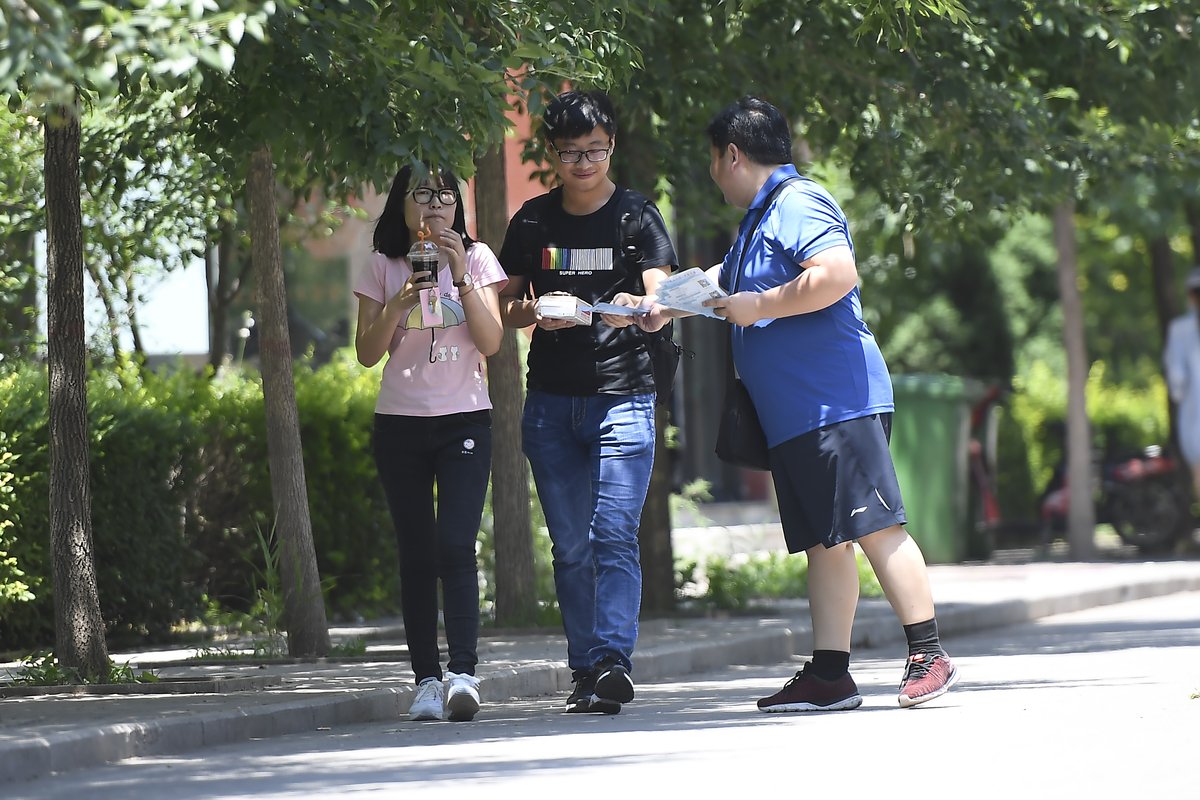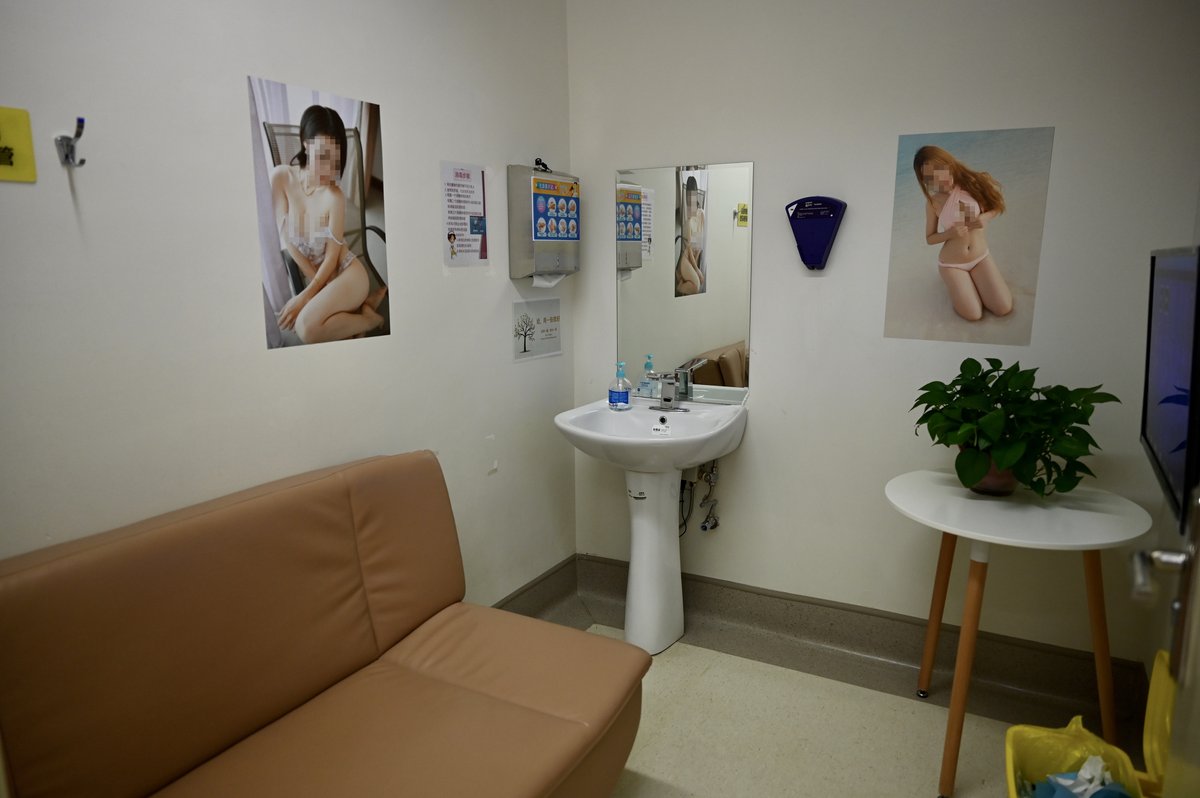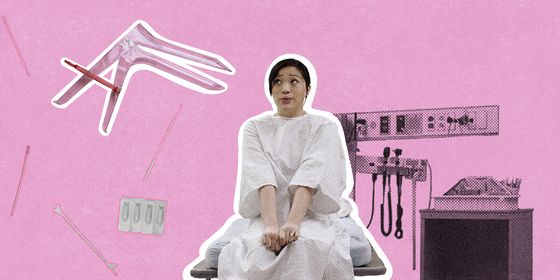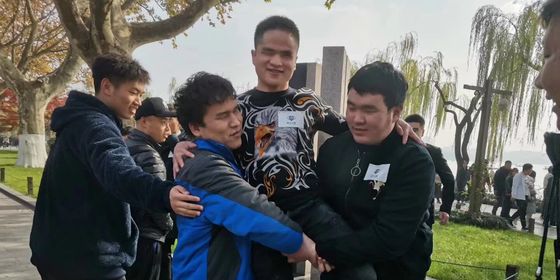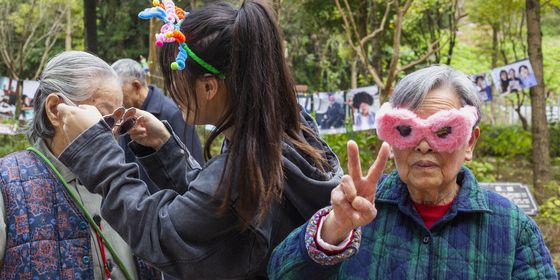Demand for sperm banks is rising, but young men struggle to meet tough technical and societal standards to donate
In February 2022, with lingering embarrassment induced by a doctor feeling him up for a testicular exam, Gao Hua entered a poky room in Shanghai Renji Sperm Bank with a wall decorated with faded portraits of women in bikinis or lingerie, early 2000s style. He sat on the small bed and flipped through the channels on the TV, but there was nothing available. “I was expecting to see a porn film,” he tells TWOC.
When Gao, who asked to be identified by a pseudonym, stepped out of the sperm bank 20 minutes later, he was a little disappointed. He had only a medical certificate and a consolation prize of 50 yuan in hand, far from the 7,500 yuan, as Renji had advertised for successful donors, that he had hoped for. His sperm had failed to meet the donation standards.
Reproduction issues have captured public attention in China recently as the country’s population shrinks for the first time in over 60 years. With the number of births falling below 10 million in 2022, a first since 1950, several cities are trying to boost birth rates by giving out cash to new parents, scrapping limits on the number of births, and including assisted reproductive technology in health care coverage. Meanwhile, China’s infertility rate is on the rise: from 12 percent in 2007 to 18 percent in 2020, according to a 2021 report on China’s national reproductive health led by Qiao Jie, a doctor and biologist at Peking University Third Hospital.
The 27 human sperm banks in China are therefore in hot demand from would-be parents. Guangdong Human Sperm Bank, the only one in the province, seems to be more or less self-sufficient with the 10,000 samples it collects from 400 volunteers each year, which covers the needs of the more than 1,000 families who apply to use donated sperm. However, many other facilities around the country have waiting lists of one to two years to access donated sperm, wrote the sperm banks in Hainan and Jiangxi provinces in a plea for donations published on their WeChat accounts this February. Many young men are answering the call to donate, but factors like the strict standards and sometimes social stigma have kept most of them, like Gao, away from the finish line.
In 1981, Lu Guangxiu, a professor at what is now Central South University, established the first sperm bank in China in Changsha, Hunan province, under the request of a patient who had failed to get his wife pregnant. Following two decades of strong unregulated growth of the assisted reproduction industry, in 2001, China’s Ministry of Health came out with regulations on sperm banks and assisted reproduction, forbidding the commercialization of sperm banks and limiting the number of facilities in each province, as well as stipulating that only five women can get pregnant from one donor’s sperm samples.
This year, sperm banks in provinces such as Yunnan, Shaanxi, and Shandong have put out a wave of public calls for donors, many even turning to Weibo for recruitment. The volunteer benefits are attractive: Typically, those who complete multiple donations over a six-month period will receive cash after each donation, which can sometimes accumulate up to more than 7,000 yuan depending on the place.
“Sperm donation is a noble, public service volunteer activity that can elevate personal values, save families, and even help a nation prosper and society harmonize,” writes the sperm bank affiliated with Peking University Third Hospital in an initiative on its public WeChat account.
Inspired by posts of donors sharing their experiences on Bilibili, Gao, who now works as a cost estimator for a small company in Shanghai, quickly signed up. He was attracted by the money as well as the free medical exam, which has a market value of more than 1,000 yuan, that comes with the donation.
Young students and recent graduates like Gao have become the main recruiting target for sperm banks. “Young people have better physical conditions,” an anonymous worker at Shaanxi Human Sperm Bank told Tianmu News this February. While multiple recent news reports point out, in many sperm banks, the proportion of volunteers whose samples meet the requirement for donation is only around 20 percent, the worker claims college students pass at a rate of around 70 to 80 percent, “if they come prepared according to our instructions,” which include three to seven days of celibacy prior to donating.
According to the same worker, students being unable to leave campus during the Covid-19 pandemic affected their supply of sperm, and the sperm bank now urgently needs donations. ”We are facing a big gap [between supply and demand],” he said. Shaanxi Human Sperm Bank received about 300 calls to make donation appointments on February 10, one day after it put out a call for donation, according to Tianmu News.
A month after his first attempt, Gao went back to Renji for a second try. Gao is 1.82 meters tall, and weighs 62 kilograms; he doesn’t smoke or drink and is otherwise healthy—but he was once again handed 50 yuan in consolation, and told by a physician that his sperm had again failed to meet the quality requirements. After two attempts, he was told his sperm would never meet the standards for donation.
Gao was not too despondent after learning about what the standard entails. Meng Tianqing, the director of Shanghai Renji Sperm Bank, clarified to news outlet Jimu on February 16 that while the sperm concentration of normal healthy men is 15 million per milliliter, the national sperm concentration requirement for sperm donors is very high—60 million sperm per milliliter. Donated semen also needs to exceed 2 milliliters in volume and 60 percent in survival rate. Donors who pass all three are then required to have a blood test to detect any diseases.
On top of that, sperm banks often set their own additional requirements. At Shanghai Renji, donors must be: aged 20 to 45, above 165 centimeters tall, have at least a junior college degree, as well as having no genetic or infectious diseases such as color weakness or hepatitis B. They must also stay in Shanghai for the whole process of donation, which involves six to 12 donations over around two to three months, and sometimes taking up to six.
The 20 percent acceptance rate that has shocked many netizens, however, is perhaps already relaxed compared to standards in the US, a country with 41 sperm banks. The Sperm Bank of California cites 20 percent as the rate of donors to pass the preliminary qualification before entering the formal screening process, according to their website, while California Cryobank and Fairfax Cryobank accept only 1 percent of applicants, according to a 2016 New York Times report.
Some of the standards for Chinese sperm donors courted controversy on social media. Some Weibo users judged Sichuan’s 168-centimeter minimum height threshold as too low (even though it is above the 163.56 centimeter average height for men in Sichuan, according to 2017 data from the Sichuan Health Planning Commission). One comment with more than 2,000 likes claimed if the height requirement was so low it would “hurt the next generations,” reflecting a common wish of Chinese parents for their children to be tall. Zhang Xinzong, manager of Guangdong Human Sperm Bank, observes to Beijing News that many leftover samples in the facility are from donors with a height around 160 centimeters collected in the early days of the bank. “We couldn‘t give them away,“ he says. “The patients don’t want them.”
Meanwhile, some netizens argue that such requirements, as well as ones on educational background, approach social Darwinism. Others still point out sperm banks reflect another layer of inequality: these facilities not only take donations, they also make it possible for males to store sperm for their own reproductive purposes; however, it is still illegal for single women in China to freeze eggs unless for the purpose of preserving healthy cells before a grave medical condition or procedure.
Many have positive views of sperm donation itself, seeing it as a noble public service, just as the sperm banks’ ads claim. However, “my parents were not supportive of me,” Gao confesses to TWOC, “they thought I was being a player by spreading my seed everywhere...But I didn’t care.”
Sometimes, sperm donation is associated with producing children out of wedlock, which, in some netizens’ eyes, complicates romantic relationships. On question-and-answer platform Zhihu, many netizens seek wisdom on questions like “Would you mind if your boyfriend donates sperm?”
One user elaborates in a post in 2017, “At first, I found it hard to accept. One reason is that I love him, and he is a unique individual in the world, but when I think of him having other descendants in the world, it feels like he doesn’t only belong to me anymore.”
Human sperm banking in China operates according to a double-blind principle, making it highly unlikely for the donor and the user to be aware of each other’s identities, let alone any possibilities of a budding attachment between the donor and the user’s family.
Sometimes, sperm donation attracts a minority of young men to fulfill other purposes. Wang Tanyue (who asked to use a pseudonym) describes himself as practicing a “role reversal relationship,” a heterosexual relationship in which the partners switch the traditional gender roles in every aspect.
“There are many women [in role reversal relationships] who don’t want to have a child,” Wang tells TWOC. Finding it unlikely that he and his potential future spouse will raise a child, Wang still wants to have offspring even if he will never get to know them, he wrote in a post on social media app Xiaohongshu.
On February 4, 2023, Wang arrived at the Beijing Human Sperm Bank and contributed a small cup of sperm. A few days later he received an emoji-laden WeChat message from the sperm bank’s account: “Congratulations! After screening, your sperm has been found to reach the sperm bank’s high standards! You’re amazing!” Wang then underwent a free medical examination a week later to confirm that he was free of any diseases, and made his first official sperm donation on March 11. He is on track to receive an allowance of 5,150 yuan if he completes 10 more sessions.
Wang’s donation may go to helping just a few of the millions of couples struggling to conceive in China, and demand continues to rise. Not every donor is so lucky. Gao is happy he tried though: “If I were accepted, I would have even felt proud.”








